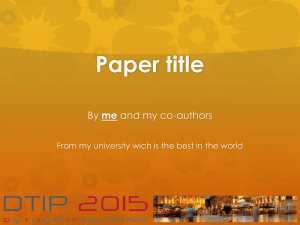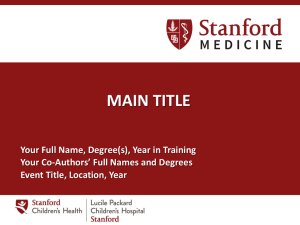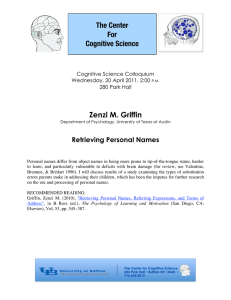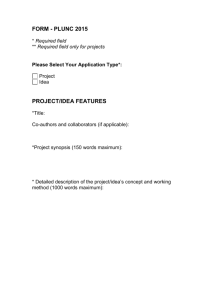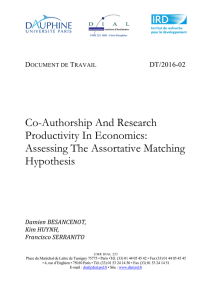Int. J. Engng Ed. Vol. 17, No. 1, p. 2,... 0949-149X/91 $3.00+0.00 Printed in Great Britain. # 2001 TEMPUS Publications.
advertisement
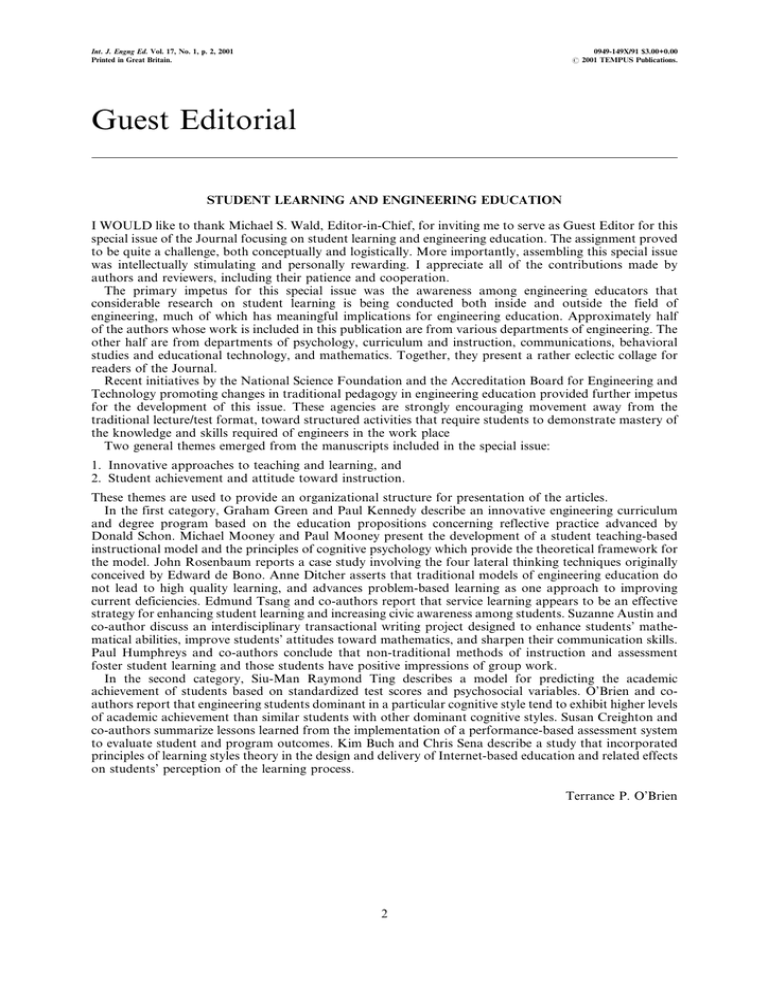
Int. J. Engng Ed. Vol. 17, No. 1, p. 2, 2001 Printed in Great Britain. 0949-149X/91 $3.00+0.00 # 2001 TEMPUS Publications. Guest Editorial STUDENT LEARNING AND ENGINEERING EDUCATION I WOULD like to thank Michael S. Wald, Editor-in-Chief, for inviting me to serve as Guest Editor for this special issue of the Journal focusing on student learning and engineering education. The assignment proved to be quite a challenge, both conceptually and logistically. More importantly, assembling this special issue was intellectually stimulating and personally rewarding. I appreciate all of the contributions made by authors and reviewers, including their patience and cooperation. The primary impetus for this special issue was the awareness among engineering educators that considerable research on student learning is being conducted both inside and outside the field of engineering, much of which has meaningful implications for engineering education. Approximately half of the authors whose work is included in this publication are from various departments of engineering. The other half are from departments of psychology, curriculum and instruction, communications, behavioral studies and educational technology, and mathematics. Together, they present a rather eclectic collage for readers of the Journal. Recent initiatives by the National Science Foundation and the Accreditation Board for Engineering and Technology promoting changes in traditional pedagogy in engineering education provided further impetus for the development of this issue. These agencies are strongly encouraging movement away from the traditional lecture/test format, toward structured activities that require students to demonstrate mastery of the knowledge and skills required of engineers in the work place Two general themes emerged from the manuscripts included in the special issue: 1. Innovative approaches to teaching and learning, and 2. Student achievement and attitude toward instruction. These themes are used to provide an organizational structure for presentation of the articles. In the first category, Graham Green and Paul Kennedy describe an innovative engineering curriculum and degree program based on the education propositions concerning reflective practice advanced by Donald Schon. Michael Mooney and Paul Mooney present the development of a student teaching-based instructional model and the principles of cognitive psychology which provide the theoretical framework for the model. John Rosenbaum reports a case study involving the four lateral thinking techniques originally conceived by Edward de Bono. Anne Ditcher asserts that traditional models of engineering education do not lead to high quality learning, and advances problem-based learning as one approach to improving current deficiencies. Edmund Tsang and co-authors report that service learning appears to be an effective strategy for enhancing student learning and increasing civic awareness among students. Suzanne Austin and co-author discuss an interdisciplinary transactional writing project designed to enhance students' mathematical abilities, improve students' attitudes toward mathematics, and sharpen their communication skills. Paul Humphreys and co-authors conclude that non-traditional methods of instruction and assessment foster student learning and those students have positive impressions of group work. In the second category, Siu-Man Raymond Ting describes a model for predicting the academic achievement of students based on standardized test scores and psychosocial variables. O'Brien and coauthors report that engineering students dominant in a particular cognitive style tend to exhibit higher levels of academic achievement than similar students with other dominant cognitive styles. Susan Creighton and co-authors summarize lessons learned from the implementation of a performance-based assessment system to evaluate student and program outcomes. Kim Buch and Chris Sena describe a study that incorporated principles of learning styles theory in the design and delivery of Internet-based education and related effects on students' perception of the learning process. Terrance P. O'Brien 2
